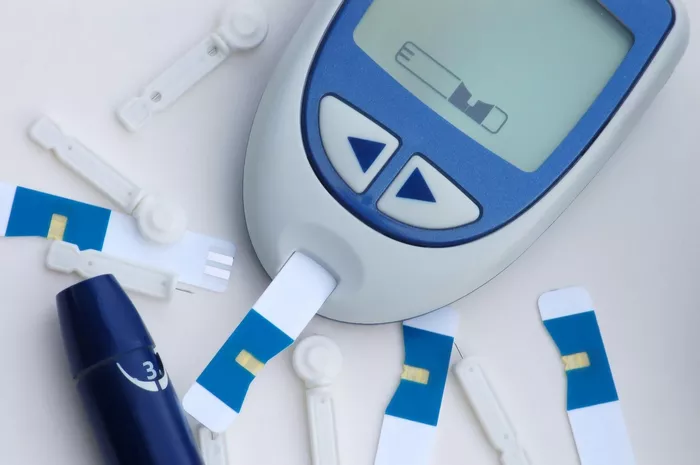During pregnancy, it is crucial to monitor and manage blood sugar levels to ensure both maternal and fetal health. One common method for assessing glucose metabolism during pregnancy is the glucose tolerance test. This test often involves consuming a glucose drink. This article will provide an in-depth look at what glucose drinks are, their role in pregnancy, and the process of glucose tolerance testing.
Understanding Glucose Drinks
1. Definition of a Glucose Drink
A glucose drink is a beverage that contains a high concentration of glucose (a type of sugar). It is typically used in medical settings to test how well the body processes glucose. The glucose drink used in pregnancy is specifically formulated to help diagnose conditions like gestational diabetes.
Composition: The glucose drink usually contains a measured amount of glucose dissolved in water. The concentration of glucose can vary depending on the specific test being administered.
Forms: These drinks are commercially prepared and are often available in different flavors to make them more palatable.
2. Purpose of the Glucose Drink in Pregnancy
The glucose drink is primarily used in glucose tolerance tests to evaluate how well the body manages blood sugar levels. This is particularly important for identifying gestational diabetes, a condition that can develop during pregnancy.
Gestational Diabetes: This type of diabetes occurs during pregnancy and is characterized by elevated blood glucose levels. It can pose risks to both the mother and the baby if not properly managed.
The Glucose Tolerance Test
1. Overview of the Test
The glucose tolerance test (GTT) is a diagnostic procedure used to assess how efficiently the body processes glucose. There are different versions of the test, including the oral glucose tolerance test (OGTT) and the glucose challenge test.
Oral Glucose Tolerance Test (OGTT): This test involves fasting overnight and then drinking a glucose solution. Blood samples are taken at intervals to measure how the body processes the glucose.
Glucose Challenge Test: This is a preliminary screening test where a glucose drink is consumed, and blood sugar levels are checked after a short period.
2. Types of Glucose Tolerance Tests
50-Gram Glucose Challenge Test: This test is usually performed between 24 and 28 weeks of pregnancy. It involves drinking a 50-gram glucose solution, and blood is drawn one hour later to measure glucose levels.
100-Gram Oral Glucose Tolerance Test: If the 50-gram test results are abnormal, a 100-gram OGTT may be conducted. This test involves fasting overnight, drinking a 100-gram glucose solution, and having blood samples taken at fasting, 1 hour, 2 hours, and 3 hours after drinking the solution.
3. Preparation for the Test
Fasting: For the OGTT, fasting for at least 8 hours prior to the test is usually required. This ensures accurate measurement of fasting blood glucose levels.
Dietary Considerations: Patients may be advised to follow a specific diet in the days leading up to the test to ensure reliable results.
How the Glucose Drink Is Administered
1. Preparation of the Glucose Solution
Concentration: The glucose drink is prepared with a precise concentration of glucose, usually around 50 grams for the challenge test and 100 grams for the full OGTT.
Flavoring: To make the drink more palatable, it is often flavored, such as with orange or lemon.
2. Consumption of the Drink
Timing: The glucose drink is consumed within a specified time frame, typically within 5 minutes. This ensures that the glucose is absorbed into the bloodstream at a consistent rate.
Monitoring: After consuming the drink, the patient will be monitored, and blood samples will be taken at specified intervals to measure glucose levels.
Interpreting the Results
1. Normal Glucose Levels
Glucose Challenge Test: In a normal result, the blood glucose level one hour after drinking the glucose solution should be below a specific threshold, usually 140 mg/dL.
Oral Glucose Tolerance Test (OGTT): For the 100-gram OGTT, normal glucose levels are usually defined as fasting blood glucose below 95 mg/dL, 1 hour post-drink below 180 mg/dL, 2 hours below 155 mg/dL, and 3 hours below 140 mg/dL.
2. Abnormal Results
Gestational Diabetes: Elevated blood glucose levels at one or more time points indicate a potential diagnosis of gestational diabetes. Further evaluation and management are required to address the condition.
Follow-Up: If abnormal results are obtained, additional tests and assessments may be conducted to confirm the diagnosis and determine appropriate treatment.
Management of Gestational Diabetes
1. Dietary Modifications
Balanced Diet: A balanced diet with appropriate portions of carbohydrates, proteins, and fats is essential. Foods with a low glycemic index are often recommended.
Monitoring: Regular monitoring of blood glucose levels helps to ensure they remain within target ranges.
2. Exercise
Regular Physical Activity: Engaging in regular, moderate physical activity helps to regulate blood sugar levels and improve overall health.
Consultation: Pregnant women should consult their healthcare provider before starting any new exercise regimen.
3. Medication
Insulin: In some cases, insulin therapy may be prescribed to manage blood glucose levels effectively.
Oral Medications: Oral medications may also be used, although insulin is more commonly prescribed during pregnancy.
4. Regular Monitoring
Blood Glucose Testing: Frequent blood glucose testing is necessary to monitor the effectiveness of treatment and ensure that blood sugar levels are within the target range.
Healthcare Visits: Regular visits to a healthcare provider help to monitor the health of both the mother and the baby.
Potential Risks and Complications
1. Risks to the Mother
Pre-Eclampsia: Women with gestational diabetes are at increased risk of developing pre-eclampsia, a condition characterized by high blood pressure and organ damage.
Increased Risk of Type 2 Diabetes: Women with a history of gestational diabetes are at higher risk of developing type 2 diabetes later in life.
2. Risks to the Baby
Macrosomia: Elevated blood glucose levels can lead to excessive fetal growth, resulting in a condition known as macrosomia. This can increase the risk of complications during delivery.
Neonatal Hypoglycemia: Babies born to mothers with gestational diabetes may experience low blood sugar levels after birth, which requires prompt management.
See also: What Level of Blood Sugar Is Dangerous During Pregnancy?
Conclusion
The glucose drink is a vital component of glucose tolerance testing, used to assess how well the body processes glucose during pregnancy. This test plays a crucial role in diagnosing gestational diabetes, a condition that requires careful management to ensure the health and well-being of both the mother and the baby. Understanding the preparation, administration, and interpretation of the glucose drink and glucose tolerance test helps in managing pregnancy-related glucose metabolism effectively. Regular monitoring, dietary modifications, exercise, and appropriate medical care are essential for managing gestational diabetes and reducing the risk of complications.
Related topics:
What Helps Low Blood Sugar While Pregnant?

























